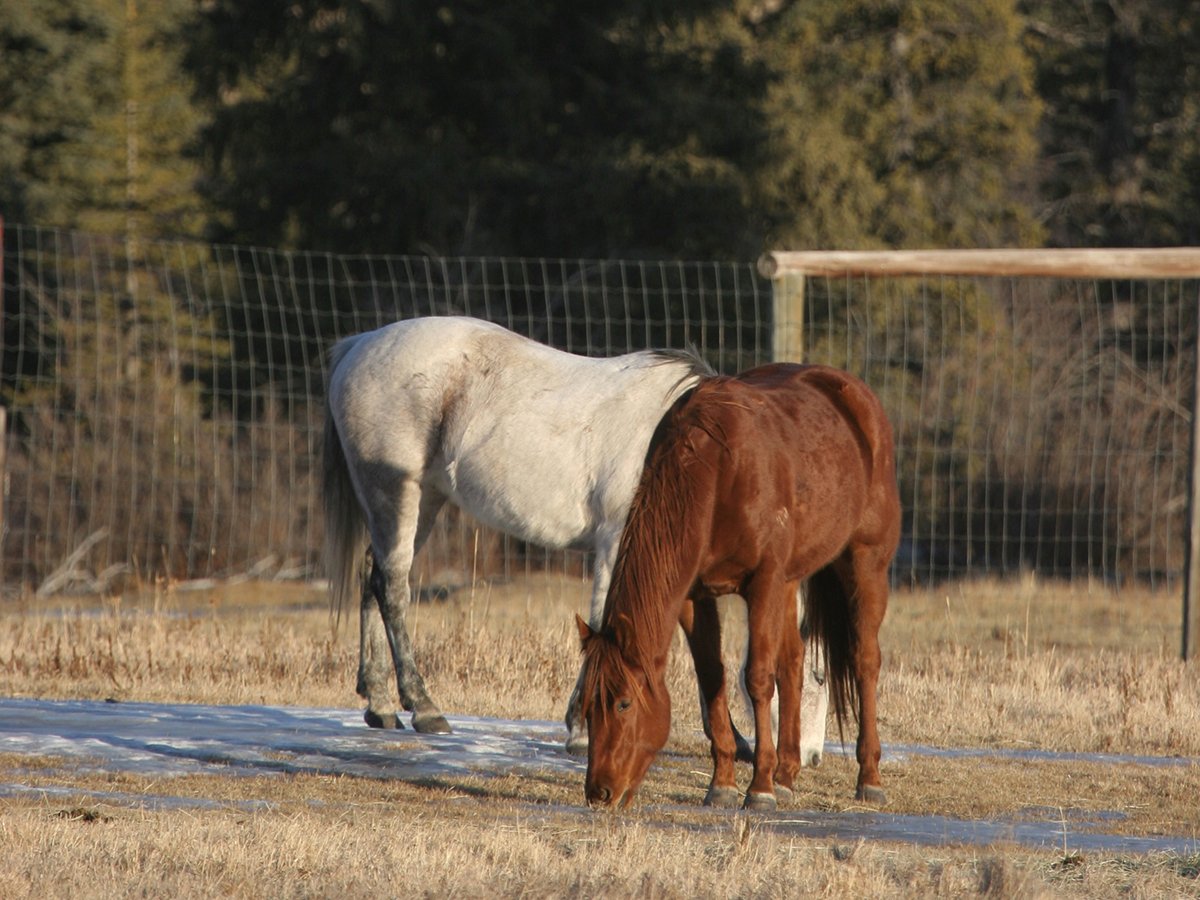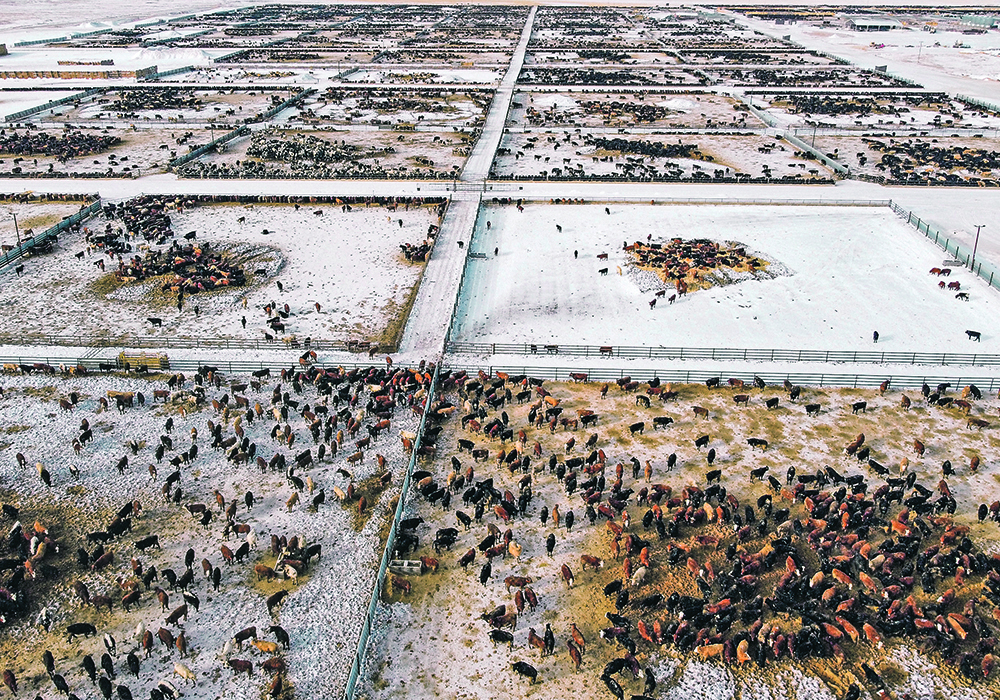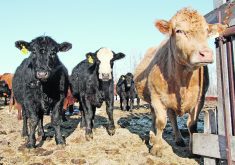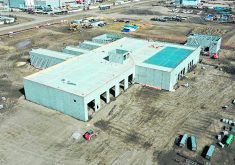CALGARY — The fight by High River, Alta., and area residents against a proposed $70 million biodigester will continue despite the Alberta government’s approval of the project.
Residents opposed plan to appeal the decision to the provincial Environmental Appeals Board, said Benita Estes, whose rural home in Foothills County is about 200 metres from the site of the biodigester.
Related stories:
- Alta. town keeps up pressure on biodigester
- Residents remaiin fearful of plans for biodigester
- Odour reduction too little
- Biodigester developer fields concerns in Alta.
- Feedlot works to fix odour mystery
Read Also

Why selenium is still an important factor in horse health
Selenium is an essential equine trace mineral that supports antioxidant defense, muscle integrity, immune function, metabolism and thyroid activity.
Rimrock Renewables Ltd. plans to construct a 102-acre facility to process cattle manure from the nearby Rimrock Feeders feedlot to produce renewable natural gas for about 6,000 homes. It is expected to be the largest of its kind in North America.
Besides the potential impact on local people such as Estes, who feared she will be affected by things such as foul odours, dust and traffic from the project, she warned other rural Albertans about the precedent set by the development’s approval.
Alberta lags far behind other jurisdictions, such as the European Union, in planning and regulating massive energy facilities on agricultural land, she said.
“Keep an eye on what your (local) county is doing, and keep an eye on the projects because one of these is coming near you. And to be tearing up agricultural lands like we are in this country is ridiculous when we’re facing food problems.”
However, Alberta has a robust regulatory review process, said Tom McMillan, director of communications for Alberta Environment and Protected Areas. It includes the ability to file an appeal to the Environmental Appeals Board “of this and any other decision,” he said in an email Dec. 15.
The application by Rimrock Renewables for the biodigester under the Environmental Protection and Enhancement Act (EPEA) was recently approved after months of deliberations by Alberta Environment and Protected Areas. The project will be located about 5.5 kilometres west of High River, which is a town of nearly 15,000 people south of Calgary.
Town and area residents fear things such as a proposed 20.7-acre open pond at the biodigester will aggravate what they describe as an ongoing foul smell from the Rimrock Feeders feedlot. However, the company has said the biodigester will reduce odours by about 42 percent by removing manure from the feedlot, which contains about 32,000 cattle.
As someone who has cleaned barns and raised cattle, Estes said the intensity of the smell is like nothing she has ever experienced.
“It smells like decaying animal with ammonia. You get that real eye burning, nose burning smell.”
The provincial Natural Resources Conservation Board received slightly more than 1,300 complaints from 277 people during the first nine months of this year, it said in an email Sept. 22. There were 285 complaints during the same period last year.
Besides manure, the biodigester will also process things such as restaurant, grocery store, slaughterhouse and fish farm waste, said Estes. The facility will also require 333,000 cubic meters of water per year “just to run this thing when we’re heading into drought,” she said.
An open letter signed by 546 people asking for a moratorium on biodigester projects in Alberta — similar to one in effect for solar and wind projects — was rejected by the provincial government. Estes subsequently met with Alberta premier Danielle Smith, who is a resident of High River, as well as environment minister Rebecca Schulz, agriculture minister RJ Sigurdson and Livingstone-Macleod MLA Chelsae Petrovic.
“I don’t think they listened to us at all,” said Estes, pointing to a multi-million-dollar provincial grant the project received before the biodigester was given the green light. “I mean, when they gave out the grant before the application was approved, it basically tells you that they already had said that this is going to be approved, (Rimrock Renewables) just has to go through the process.”
However, the decision was made after extensive deliberations by Alberta Environment and Protected Areas, said McMillan.
“The department closely consulted with scientific experts and others in assessing the facility’s environmental impact on odour, as well as waste, soil, industrial wastewater, industrial run-off and groundwater. The approved application includes specific and mandatory odour mitigation strategies that Rimrock Renewables must undertake.”
Such strategies are designed to reduce smells and address concerns of residents who live downwind of the facility, he said.
“Rimrock is required to implement an odour control plan using global best practices and to develop an odour management and response program before the facility starts operating. The company is also required to provide financial security for decommissioning and reclamation costs as part of the approval.”
Rimrock Renewables officials did not return a request Dec. 15 for an interview. Parent company Tidewater Renewables Ltd. said in a statement Dec. 14 the approval of the biodigester demonstrates its commitment to pursue projects that provide clean energy.
“We appreciate the support from the Alberta government and Foothills County, as well as the feedback we’ve received during our consultation and engagement with local stakeholders,” chair and chief executive officer Rob Colcleugh said in the statement. “This EPEA approval is an important milestone, and we will continue to progress the commercial and regulatory processes on the path to the final investment decision.”
Contact doug.ferguson@producer.com
















